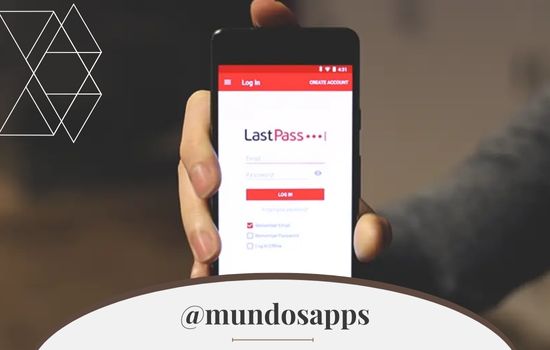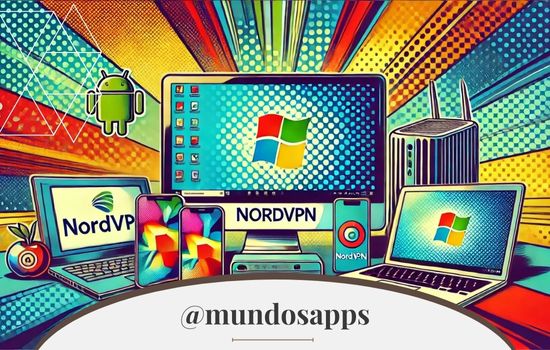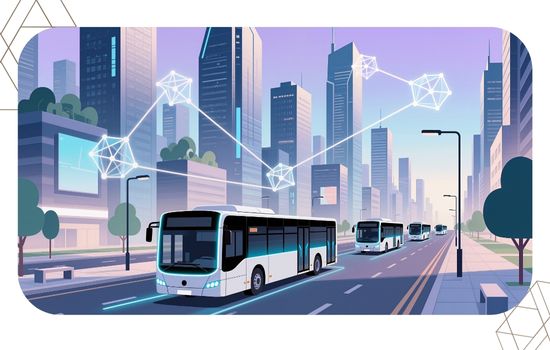Advertisements
Have you ever stopped to think about the amount of personal information we store on our devices?
Passwords, conversations, documents, photos… The list seems endless.
In a world where we increasingly rely on online applications and services, protecting this data has become a priority.
In this comprehensive guide, I'll show you how to strengthen your digital security using powerful and accessible apps. Let's get started!
What is digital security and why is it important?
Digital security is a set of practices designed to protect our online information from unauthorized access, theft, and fraud.
Advertisements
Think of digital security as a lock on your online life. Without it, you could be leaving the door open to hackers and scammers.
Why is this so important? Imagine losing access to your bank account or having your personal photos exposed.
These situations are not only annoying, but can also have a devastating impact on your life.
Digital security aims to ensure that your data is protected against these threats.
Read also:
- Daily Airline Ticket Deals: Tips and Essential Sites
- Personalized Horoscope Apps
- Take care of your plants with smart apps
- Bring the GTA 5 experience to your mobile
- Optimize your cell phone's battery easily
Read on!
Main current digital threats
Before talking about solutions, it's important to understand the threats we face.
Here are some of the most common ones:
- Phishing: Fake emails or messages that try to trick you into revealing personal information.
- Malware: Malicious programs designed to steal data or damage devices.
- Password attacks: When hackers try to guess or steal your passwords.
- Ransomware: A type of malware that locks your data and demands payment to release it.
Although these threats sound alarming, the good news is that there are effective tools to protect you from all of them.

Applications to manage passwords securely
How many times have you reused the same password across multiple accounts? I've done it in the past too, but it's a mistake that can cost you dearly.
Password management apps can make all the difference and make your digital life much more secure.
LastPass
LastPass is one of the best password managers on the market. It stores all your passwords in a secure digital vault and also generates strong passwords for your accounts. The best part is that you only need to remember one master password to access everything. Plus, it syncs across devices, which is extremely convenient.
VPN: How to Protect Your Online Data
If you frequently use public Wi-Fi networks, such as in coffee shops or airports, you need a VPN.
These networks are very vulnerable, and anyone with basic knowledge could intercept your connection and steal information.
NordVPN
NordVPN creates a secure "tunnel" for your data while you browse the internet. It protects your privacy by masking your IP address and encrypting your connection. This means that even your internet provider can't track your online activities.
Tips to avoid digital scams and fraud
No one is completely safe from scams, but with a few simple practices, you can drastically reduce your risk:
- Be wary of suspicious links. Never click on links from unknown senders.
- Verify the authenticity of messages. Financial institutions never request personal information via email or text message.
- Keep your devices up to date. Software updates often include important security fixes.
Two-factor authentication resources and how to use them
Two-factor authentication (2FA) adds an extra layer of security to your accounts.
In addition to your password, you must confirm your identity with something only you have, such as a code generated by an app.
Google Authenticator
Google Authenticator is an excellent option for two-factor authentication. It generates one-time verification codes that expire quickly, making it difficult for hackers to access your accounts. It's easy to use and very effective.
Common mistakes that compromise your digital security
Sometimes, our own habits put our information at risk. Here are some mistakes you should avoid:
- Using weak or repeated passwords.
- Ignore unauthorized login notifications.
- Sharing personal information on social networks.
Avoiding these mistakes is a big step toward better digital security.

What users say
The apps mentioned in this guide have excellent user reviews:
LastPass
“I feel much more secure knowing my passwords are protected. It's so easy to use!” – 4.7-star rating on the Play Store.
NordVPN
“My connection has never been so fast and secure. I can't imagine browsing without this.” – 4.5-star rating on the App Store.
Google Authenticator
“Simple and straightforward. There's no excuse not to use two-factor authentication.” – 4.6-star rating on the Play Store.
Conclusion
Digital security is a necessity in today's world. With tools like LastPass, NordVPN and Google Authenticator, you can protect your data and browse with peace of mind.
Remember, security is not an expense, but an investment.
Ready to get started? Check out the links below and download the recommended apps.
And don't forget to share this article with friends and family. We all deserve to be safe online!
Download links:
LastPass: Android / iOS
NordVPN: Android / iOS
Google Authenticator: Android / iOS
Now it's your turn to protect your data! 🚀
FAQs on Digital Security and Applications
1. What is digital security and why is it important?
Digital security refers to the practices and tools designed to protect our online information from unauthorized access, theft, or fraud. It's important because our lives increasingly depend on digital devices and services that store sensitive data, such as passwords, banking information, and personal documents. Without adequate protection, this data can fall into the hands of hackers or be used for malicious purposes.
2. What is a password manager and how does it work?
A password manager is an application that stores all your passwords in a secure, encrypted vault. It can also generate strong, unique passwords for your accounts, eliminating the need to remember multiple complex passwords. You only need to remember one master password to access the manager, which automatically fills in your credentials when you log in to your accounts.
3. How can a VPN improve my online security?
A VPN (Virtual Private Network) protects your internet connection by encrypting your data and masking your IP address. This means your online activities can't be tracked by third parties, such as hackers, internet service providers, or even governments. It's also especially useful when using public Wi-Fi networks, where your information may be more vulnerable to attacks.
4. What is two-factor authentication (2FA) and why should I use it?
Two-factor authentication is an additional security measure that requires two steps to verify your identity when logging into an account. For example, after entering your password, you'll need a code generated by an app like Google Authenticator. This makes it difficult for hackers to access your accounts, even if they've stolen your password.
5. What are the most common digital threats and how can I protect myself?
The most common threats include phishing (attempts to deceive you into giving away personal information), malware (malicious programs that damage devices or steal data), and password attacks (attempts to crack your passwords). To protect yourself, use strong passwords, avoid clicking on suspicious links, install antivirus software, and keep your devices updated.
6. What should I do if I suspect my account has been hacked?
If you suspect your account has been compromised, act quickly. Change your password immediately, enable two-factor authentication, and check connected devices to ensure there is no unauthorized access. Also, contact the support of the affected service for additional assistance and be sure to monitor your online activity for any anomalies.
7. Are digital security apps like LastPass or NordVPN safe?
Yes, apps like LastPass and NordVPN are widely recognized for their security and effectiveness. LastPass uses end-to-end encryption to protect your passwords, while NordVPN implements advanced protocols to keep your data private. Make sure to download these apps from official sources to ensure their authenticity.
8. What daily habits can I adopt to improve my digital security?
Adopting good habits is essential. Use unique, strong passwords for each account, regularly update your devices and apps, avoid public Wi-Fi networks without a VPN, and never share sensitive information through unverified messages or emails. These small actions can make a big difference in your online security.



